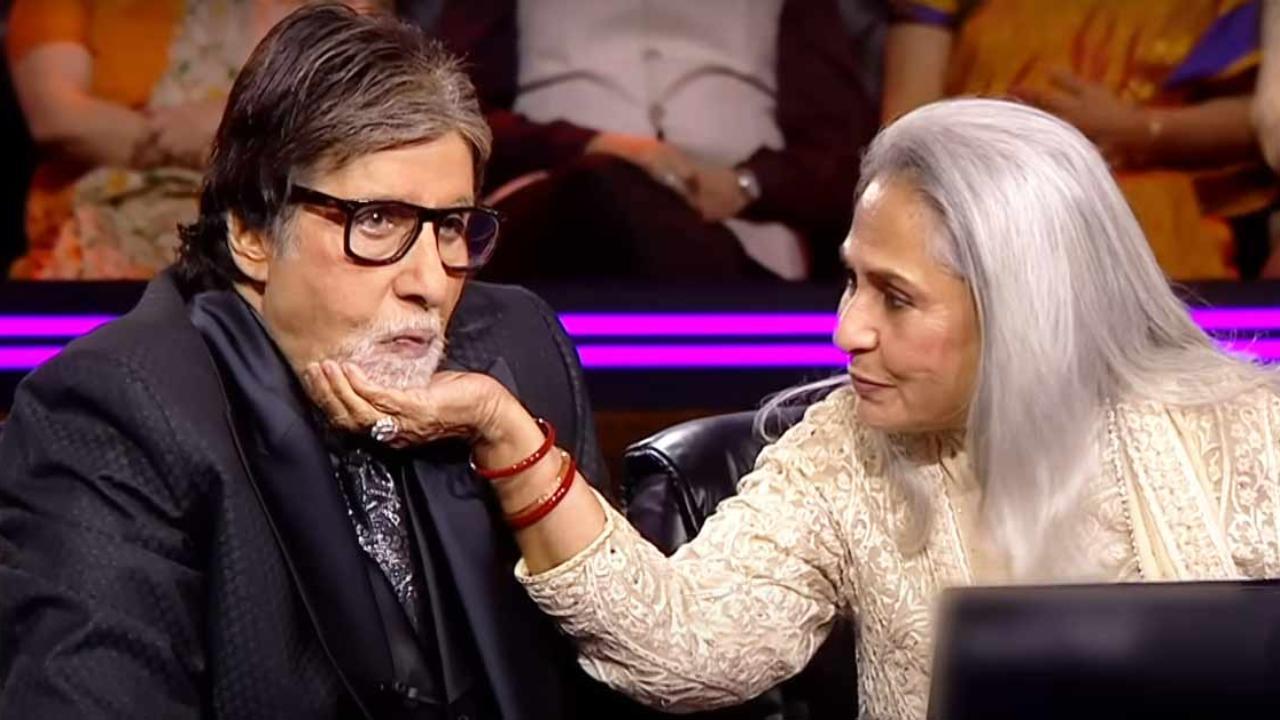Jaya Bachchan and Amitabh Bachchan have given Hindi Cinema some classic films in their careers together. What better day than Jaya's birthday to discuss them?

Amitabh Bachchan and Jaya Bachchan
Amitabh Bachchan and Jaya Bachchan's collective experience of working in Hindi Cinema is over 80 years, with the former still on a film signing spree. They have contributed some great moments to Hindi Cinema. On Jaya Bachchan's birthday, it’s time to look at some life lessons that the actors have imparted through their films since 1973.
'Zanjeer' (1973)- Opposites Do Attract
‘Zanjeer’ is the film that made Amitabh Bachchan a force to reckon with. He had years of commercial failures behind him. This time, Prakash Mehra gave the actor a role that commanded grief and fury at the same time. A young and dynamic Bachchan let his brooding aura do all the talking. Jaya Bachchan was a chatterbox, meanwhile. They started on an awful note and predictably fell in love. Opposites do attract, even if you’re the angry young man.
'Abhimaan' (1973)- Respect everyone’s success, and accept yours
Hrishikesh Mukherjee was the master of telling endearing and affectionate stories in the most gentle way possible. It’s hard to recall any of his films where any character has raised his voice. Maybe Amitabh Bachchan in 'Anand' and that too because he wanted his patient to take his illness seriously and not as a joke. In 'Abhimaan', once again, Bachchan lets his eyes emote his turmoil. He falls in love with a singer and marries her. Soon, her fame and popularity overpower his. And soon, his Abhimaan (Ego) steps in. Life lesson here- Respect everyone’s success, and accept yours.
Mili (1975)- Live, Love, Laugh
Yes, this is the name of Deepika Padukone’s foundation and this is also the charming message ‘Mili’ has for the viewers. The Bachchans teamed up once again for Hrishikesh Mukherjee’s drama about a girl with a terminal illness. The plot was reminiscent of ‘Anand’ and the treatment was just as solid. Even if you know your end is near, live, love, and laugh.
Chupke Chupke (1975)- Don’t try this at home
Hrishikesh Mukherjee’s cinema had no villains, they just had good-hearted people who could make unwise decisions, sometimes crooked. The very plot of ‘Chupke Chupke’ is about deceit and mistaken identity, and the filmmaker fuels the story further with his pure gaze. Bachchan here played Professor Sukumar Sinha who falls for the charm of Vasudha Kumar. The film is a masterclass in how to confess your love and how to lie. Statutory Warning- Don’t try this at home.
Sholay (1975)- Not All Stories Have A Happy Ending
‘Sholay’ is one of the most remembered and revered masala blockbusters of all time. The grandeur suggests Ramesh Sippy was aiming to make a film that refuses to imagine small. Sippy’s classic is the tale of two friends Jai and Veeru (Dharmendra and Amitabh Bachchan) who are hired by a former police officer, Thakur (Sanjeev Kumar) to nab a bandit Gabbar. (Amjad Khan). Bachchan begins to get attracted to Thakur’s widowed daughter-in-law. (Jaya Bachchan). She falls in love with him too. But fate had other plans and Bachchan dies battling Gabbar’s goons. It’s an iconic and moving climax that brings the harsh truth of cinema right in front of us that not all stories have a happy ending.
Silsila (1981)- Love Hurts
Yash Chopra’s love saga is the story of four people (Amitabh Bachchan, Rekha, Shashi Kapoor, Jaya Bachchan) and how love separates and unites them in the strangest and the most challenging circumstances. An old romance that’s short-lived is rekindled and gives us a polarising take on infidelity. The casting coup that Chopra pulled off aside, 'Silsila' proves how love hurts and could continue to do so.
Kabhi Khushi Kabhie Gham (2001)
The tagline of Karan Johar’s sprawling family saga says- It’s all about loving your family. What greater life lesson can a film impart? Amitabh Bachchan throws his elder son Rahul (Shah Rukh Khan) out of the house and nearly disowns him for one decision he makes in love. It’s only after 2 decades he realises what he lost. Obviously, it was a happy ending otherwise how would Johar justify the title and the tagline.
 Subscribe today by clicking the link and stay updated with the latest news!" Click here!
Subscribe today by clicking the link and stay updated with the latest news!" Click here!








